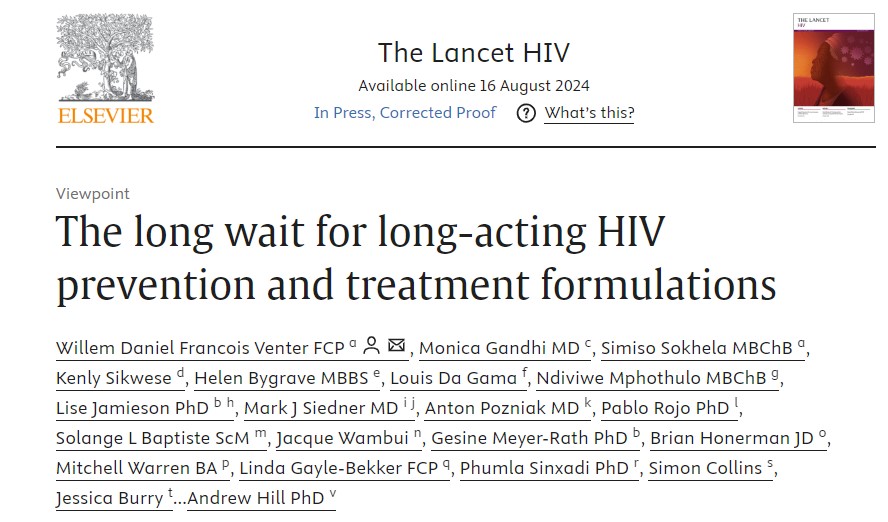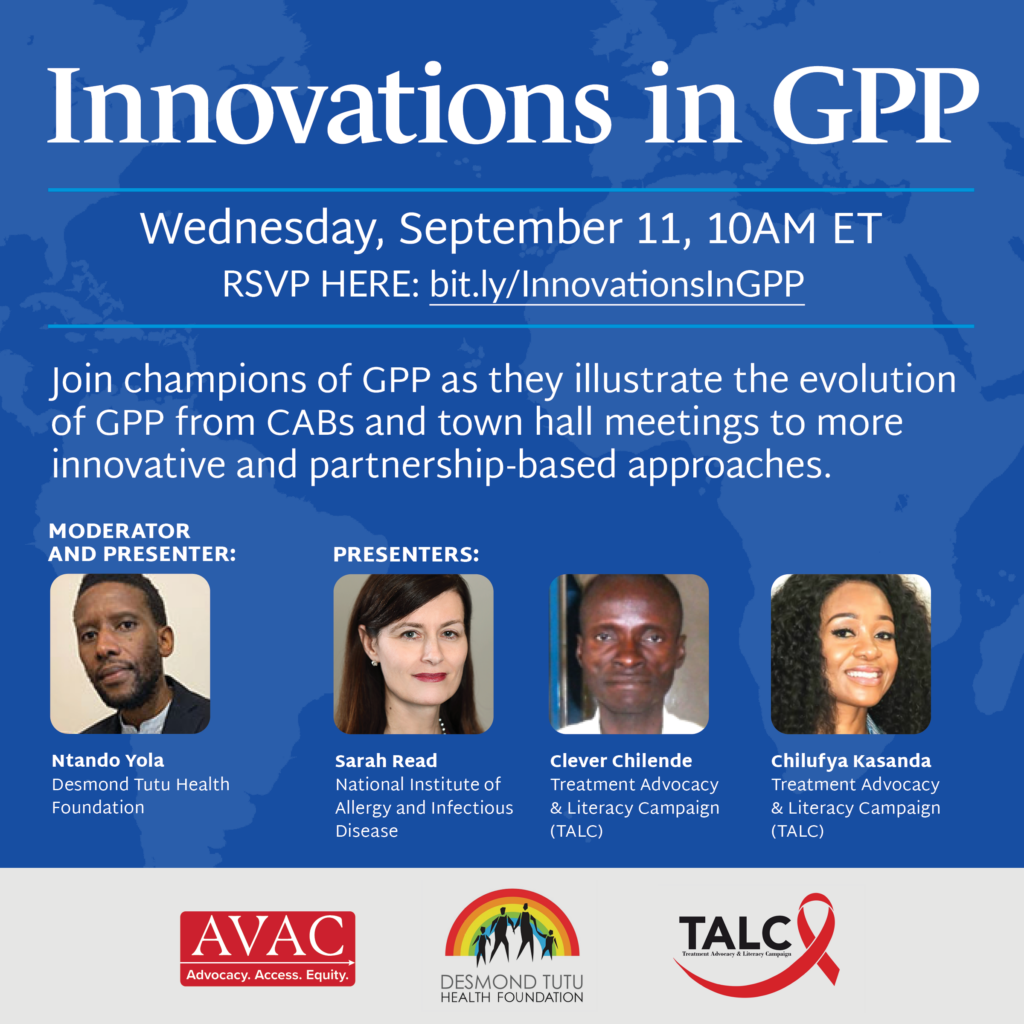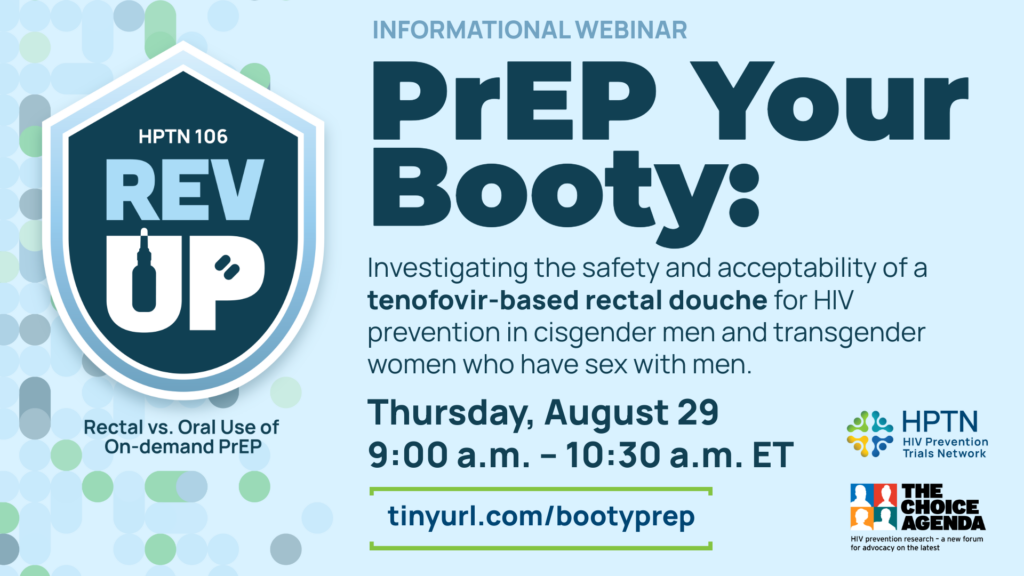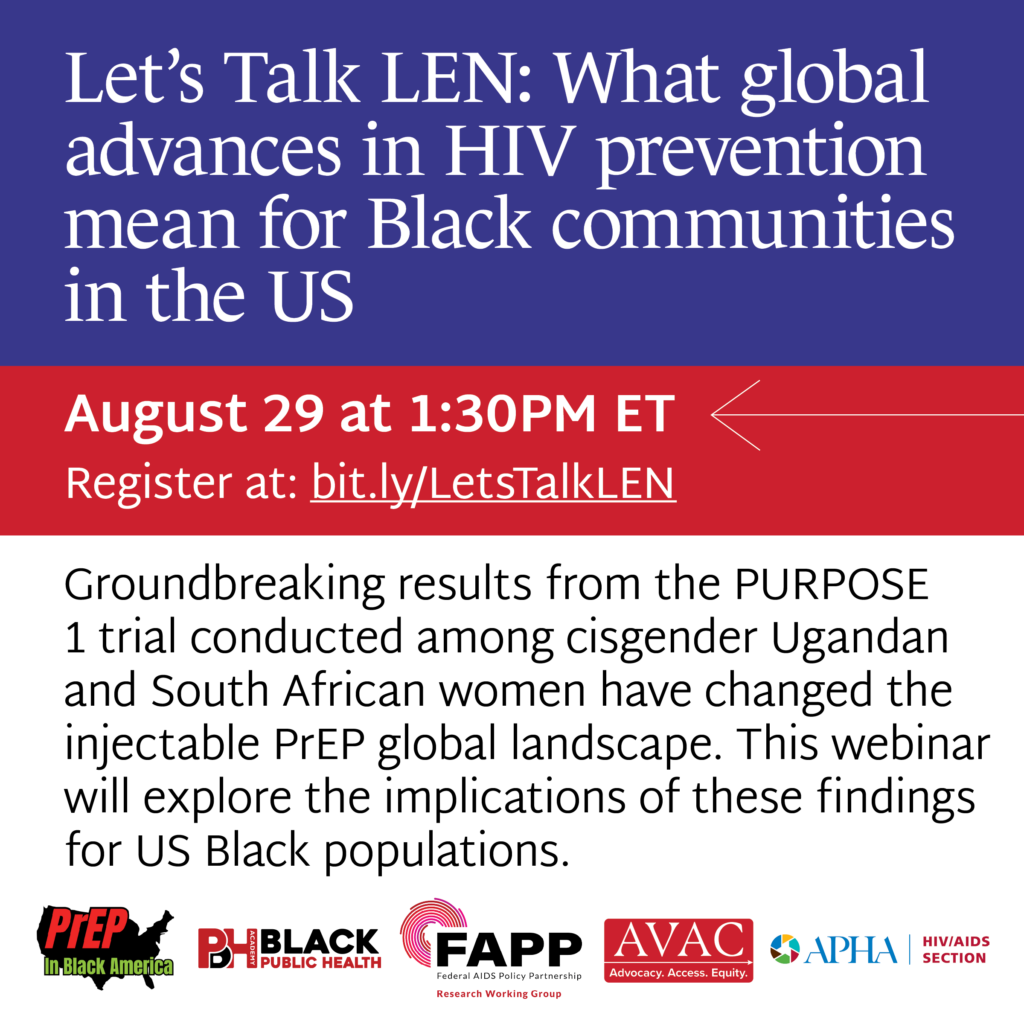Dear Advocate,
How do we translate recent scientific advances in long-acting HIV prevention and therapy into public health impact? Read answers in this new The Lancet HIV commentary from a distinguished group of authors including our Executive Director, Mitchell Warren, AVAC board members, Linda-Gail Bekker, Solange Baptiste Simon, with partners Francois Venter, Kenly Sikwese, and others: The long wait for long-acting HIV prevention and treatment formulations.

Major advances in long-acting HIV treatment and prevention, including the latest PURPOSE 1 results of lenacapavir for PrEP, hold great promise for achieving global targets. However, planning to coordinate among stakeholders, including pharmaceutical companies, governments, and multilateral organizations to deploy and ensure equitable access to these products, particularly in low- and middle-income countries, requires immediate action.
“Civil society organisations and HIV activists have been instrumental in holding pharmaceutical companies, financial donors, governments, and international organisations accountable for commitments to the international HIV treatment response for decades,” the authors write. “These organisations and activists are needed to promote transparency in pricing, challenge restrictive patent practices, advocate for affordable and widespread availability of drug innovations, prevent companies from restricting broad access to medications, and require funding to allow this work to be done independently.”
Key Messages
- Long-acting antiretrovirals are perhaps the greatest advance in HIV care in over a decade and provide great promise towards achieving global HIV prevention and control programme targets.
- Current long-acting agents are firmly under the control of originator pharmaceutical companies and remain unavailable or cost-prohibitive across much of the globe.
- If action from the broader HIV community is stagnant, the populations who are most in need of these long-acting agents are unlikely to receive any benefit until well into the 2030s, resulting in a large number of preventable HIV infections.
- Coordination by international agencies, with assistance from relevant financial donors and stakeholders, will be needed in the complex research and access programmes required to provide widescale use of these indispensable products to people living with HIV or affected by HIV.
Resources on Long-Acting HIV Prevention
The Lens on LEN: this primer for advocates shares the basics on injectable lenacapavir as PrEP.
Long-Acting PrEP Status Update: this webpage shares graphics and information synthesizing the current status of long-acting PrEP products. It’s updated quarterly.
PrEP Products Overview: this page on PrEPWatch shares the status of PrEP products in development and approved.
Injectable Cabotegravir Evidence Gap Tracker: this webpage summarizes the latest insights from the Biomedical Prevention Implementation Collaborative (BioPIC) on injectable CAB for PrEP, links to learn more, and information on where evidence is still needed, mapped against priority evidence gaps.
Years Ahead in HIV Prevention Research: Time to Market: this downloadable graphic shows the potential time points when the next-generation of HIV prevention options might find their way into new programs.


